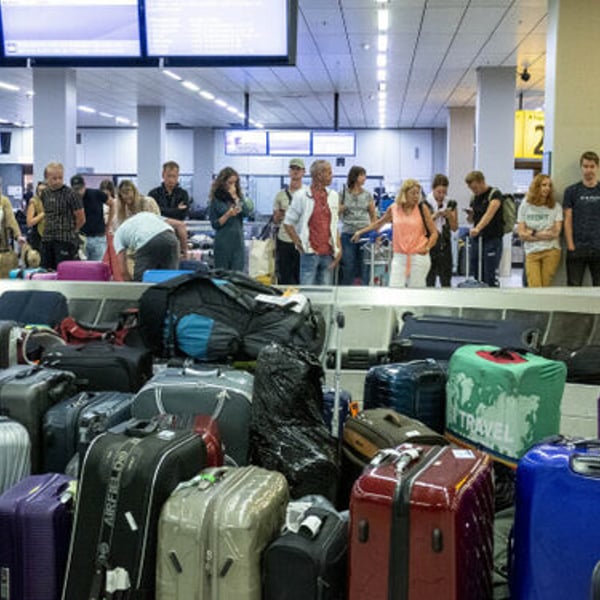By
AFP-Relaxnews
Published
Dec 7, 2023
Aiirlines should carry a record number of passengers next year as the sector puts the Covid-19 pandemic behind it, the industry’s top trade association said Wednesday, although profitability remains a concern.
The International Air Transport Association (IATA), in its traditional review of industry trends as the year draws to a close, said more normal growth patterns were expected from here on out as the sector has recovered to pre-pandemic levels.
“People love to travel and that has helped airlines to come roaring back to pre-pandemic levels of connectivity,” IATA’s director general Willie Walsh said as the body forecast a record 4.7 billion people will take to the skies in 2024.
IATA noted this is a “historic high that exceeds the pre-pandemic level of 4.5 billion recorded in 2019.”
For this year, it expects 4.29 billion passengers, a small drop from its June forecast of 4.35 billion.
Walsh said “the speed of the recovery has been extraordinary” but also noted it “appears that the pandemic has cost aviation about four years of growth.”
Aviation suffered immensely from the travel restrictions that countries imposed in a bid to slow the spread of Covid-19, with a number of airlines going out of business and others bailed out as the industry racked up $183 billion in losses during the 2020-2022 period.
IATA raised its profit outlook, expecting airlines to post $23.3 billion in net earnings in 2023, more than double the $9.8 billion it forecast in June.
IATA forecasts $25.7 billion in net profits in 2024 on a 7.6-percent rise in revenues to $964 billion.
Walsh called the figures a “tribute to aviation’s resilience” but said the industry’s profits need to be put into perspective.
A “net profit margin of 2.7 percent is far below what investors in almost any other industry would accept,” he said.
Price of ‘grande latte’
Airlines will on average retain just $5.45 for every passenger carried, according to IATA’s calculations.
“That’s about enough to buy a basic ‘grande latte’ at a London Starbucks,” said Walsh, who formerly ran IAG, the parent company of British Airways.
“But it is far too little to build a future that is resilient to shocks for a critical global industry on which 3.5 percent of GDP depends and from which 3.05 million people directly earn their livelihoods,” he added.
The situation will continue to vary considerably by region.
US, European and Middle Eastern carriers are expected to continue to post profits in 2024, with Asian-Pacific airlines expected to return to profitability.
African and South American carriers are expected to remain in the red.
More want to fly
IATA said the optimistic outlook for the industry is supported by its survey data showing that nearly half of people’s travelling habits have returned to pre-pandemic norms.
One third reported travelling more and just 18 percent said they are still travelling less.
Furthermore, it said 44 percent of respondents said that they will travel more in the next 12 months than in the previous 12 months.
Only seven percent said they will travel less and 48 percent expected to maintain similar levels of travel in the coming 12 months as in the previous 12 months.
This growth comes despite an increase in fares in 2023 as demand outstripped seat capacity, with airlines hobbled by some aircraft being out of service over engine issues and delayed delivery of new aircraft.
IATA expects growth in fares to moderate in 2024, while fuel costs are expected to remain high and continue to account for nearly a third of costs.
As negotiators debate the thorny issue of fossil fuels at the COP28 climate summit, IATA said the airline industry will use 374 billion litres of fuel in 2024 and put 939 million tonnes of CO2 into the atmosphere.
While the airline industry accounts for less than three percent of global CO2 emissions, it serves only a tiny percentage of the world’s population.
The sector hopes to shift to sustainable aviation fuels to achieve its 2050 net-zero target, but IATA expects they will account for just 0.53 percent of consumption compared to 0.2 percent this year.
Copyright © 2023 AFP-Relaxnews. All rights reserved.







